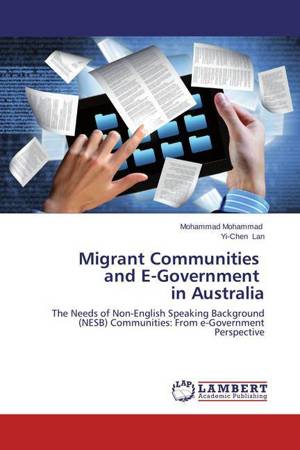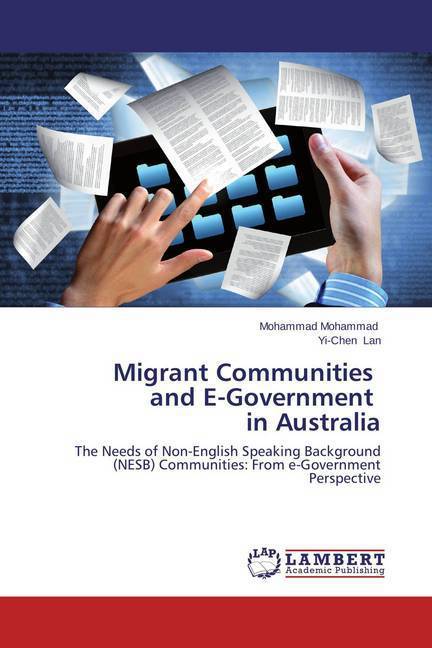
- Afhalen na 1 uur in een winkel met voorraad
- Gratis thuislevering in België vanaf € 30
- Ruim aanbod met 7 miljoen producten
- Afhalen na 1 uur in een winkel met voorraad
- Gratis thuislevering in België vanaf € 30
- Ruim aanbod met 7 miljoen producten
Zoeken
Migrant Communities and E-Government in Australia
The Needs of Non-English Speaking Background (NESB) Communities: From e-Government Perspective
Mohammad Mohammad, Yi-Chen Lan
Paperback | Engels
€ 110,45
+ 220 punten
Omschrijving
Australia is one of the most culturally diverse and prosperous societies in the world, and such heterogeneity or pluralism has both advantages and challenges. The Australian government must provide support to and for the integration of migrants, especially among those with a non-English-speaking background (NESB). Investments in information systems (IS) have resulted in the use of information and communication technology (ICT) to raise public awareness of the country's policies, programmes and services. However, communication issues have recently emerged between the government's online IS and the NESB migrants and their communities. Based on their increasing significance in Australia's socio-economic and political landscape, it is necessary not only to identify and understand the needs of NESB migrants, but also to determine the barriers (both perceived and actual) that NESB migrants experience with regard to government online services (otherwise termed 'e-government').
Specificaties
Betrokkenen
- Auteur(s):
- Uitgeverij:
Inhoud
- Aantal bladzijden:
- 328
- Taal:
- Engels
Eigenschappen
- Productcode (EAN):
- 9783659525681
- Verschijningsdatum:
- 14/04/2014
- Uitvoering:
- Paperback
- Afmetingen:
- 150 mm x 220 mm
- Gewicht:
- 481 g

Alleen bij Standaard Boekhandel
+ 220 punten op je klantenkaart van Standaard Boekhandel
Beoordelingen
We publiceren alleen reviews die voldoen aan de voorwaarden voor reviews. Bekijk onze voorwaarden voor reviews.








